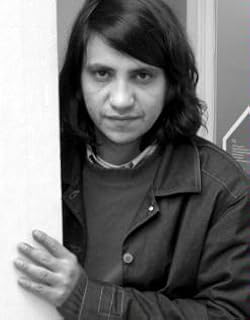
This story can be found in the July 6, 2015 issue of The New Yorker magazine.
My comments can also be found on The Mookse and the Gripes.
First Line: "After so many study guides, so many practice tests and proficiency and achievement tests, it would have been impossible for us not to learn something, but we forgot everything almost right away and, I'm afraid, for good."
Last Line: "You all weren't educated; you were trained."
Something is missing here for me on this one. It
feels like a memoir/essay that moves clumsily into an anecdote, then crashing with
a “thud” into a slightly humorous satire.
This tale is set-up perfectly for an honors English to take
and dissect into form and feature. The quiz
at the end is a parody of the theme – a gimmick to be sure – but one that will
introduce students to a new author and will offer opportunities to compare and
contrast education across cultures.
But for me? At this
point in my life? I have heard great
things about the creativity and skill of Alejandro Zambra, and I am
disappointed that “Reading Comprehension: Text No. 1” was my introduction to
his work.
I was not reading a story here. I was reading an English Comp paper written
by a student who decided to be clever – and even a bit trite.
Not every writing by a well-praised writer can be
praiseworthy. But in this magazine? Surrounded by accolades in an interview and
laden with commendation in an interview?
This piece does not warrant
the laurel leaves.
Photo credit: http://ecx.images-amazon.com/images/I/31WsBJrMvxL._UX250_.jpg

You misinterpret the purpose and meaning of this piece. I believe this type of writing is known as expository prose and Mr. Zambra attempts to recreate the dullness found in high schools across the world. He doesn't explicitly explain every detail of the story or even flow between them, but that is nor his intention. The quiz at the end is not a parody, but a recreation, a sampling of the kinds of impossible questions found on reading exams. It is a fitting conclusion to a story that starts denouncing the nature of knowledge retained from school. I don't see your comp lit paper, as there is nothing to contrast it with (except for a public institution, but I think you are implying a cultural comparison that does not exist). I found the style rather refreshing and interesting, reminiscent of post-modern literature that focuses on the outskirts of an issue, while largely ignoring the nexus itself. Thanks for your thought, glad to hear what other think!
ReplyDeleteAnonymous:
ReplyDeleteThanks for your comments!
You might find Zambra's interview with The New Yorker interesting: http://www.newyorker.com/books/page-turner/fiction-this-week-alejandro-zambra-2015-07-06. I always try to find interviews or writings by authors to further understand their intent - and whether they communicated that intent clearly to me.
There he details his thoughts and decision concerning the writing of this piece. He said he "felt the joy of the parody". It was quite interesting to read his take on his own story. Interesting to find that while he found something distasteful in his experience, he also found some benefits.
I am glad Zambra does not over-explain anything. It would further bore and tire me as a reader.
Thanks again for taking the time to leave a comment here!